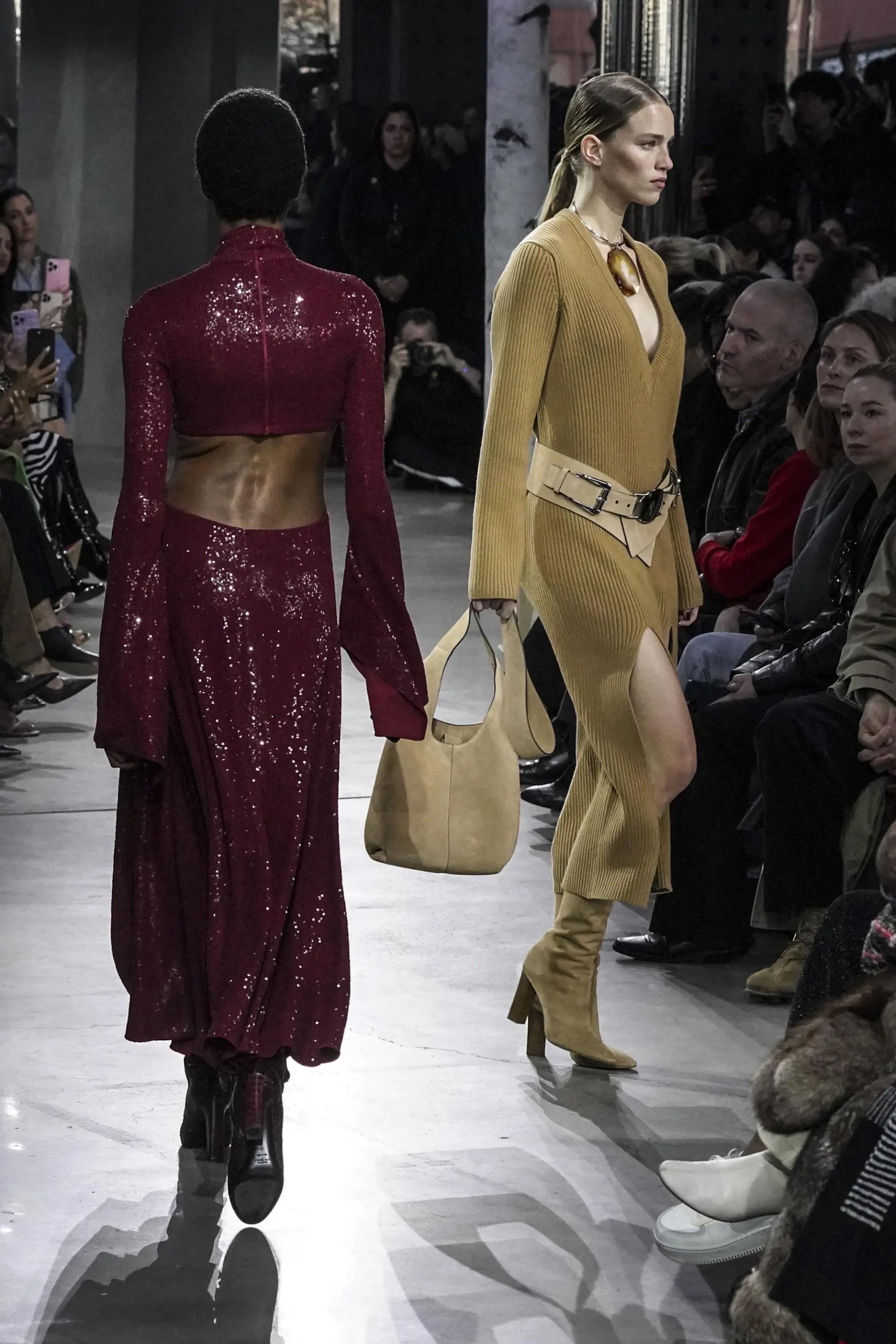Protecting Fashion Workers: Legal Reforms In Action

A new piece of legislation known as the Fashion Workers Act aims to bring much-needed reforms to the Fashion industry (Photo Credit: AP News)
Fashion workers in New York City have long faced exploitation and unfair treatment by modeling agencies. WFUV’s Savannah Mitchell explores how a new piece of legislation could impact their lives and bring change to the industry.
Mitchell: Marisa Reif is a professional makeup artist who often gets hired through modeling agencies. Similarly to what models experience, she typically has to wait months to receive payments.
Reif: “Oh my god. Dude, I never get paid. Never. Never, dude. Like, it's very rare that I'll even get paid 30 days after a job. Sometimes it's 60 days. Sometimes it's 90 days. Sometimes it's more.”
Mitchell: For years, modeling agencies in New York have largely escaped licensing and regulation, leaving many fashion workers exploited in several ways.
Mitchell: Victoria Pousada is an agency-affiliated model and actress. She recalls one experience where she had to repeatedly reach out to a company regarding a late payment.
Pousada: “I was just emailing them constantly and emailing their entire team and CCing them and just, it's, it's obnoxious. And it's also hurtful to your pride that you had to literally chase after your money.”
Mitchell: When talent such as models, makeup artists, hair stylists, influencers, and others sign with an agency, the company is allowed to accept, reduce, and negotiate payments, deposit checks, and control their job opportunities. But some agencies take advantage of their talent by overcharging them, requiring unexplained fees, and trapping them with unfair contracts. Another way that some fashion workers have been taken advantage of is through harassment and sexual exploitation.
Sutherland: “I modeled for 15 years and I think I can honestly say I never felt safe in the fashion industry. As a model, whether you experience it yourself or witness it firsthand, the possible dangers you step onto each photoshoot or fashion show with hyper-vigilance. You're in a chronic state of anxiety and fight or flight because you have zero protection.”
Mitchell: That was Alyssa Sutherland, a former model who believes that the Fashion Workers Act is going to change this for the better.
Sutherland: “Agencies associate with, and in some cases, aid sexual predators, they steal wages, and use intimidation to maintain their position of power over you. The passing of the Fashion Workers Act is historical, and will ensure that models are a lot safer than ever before.”
Mitchell: Kai Braden has worked as a model for two decades. He feels similarly to Sutherland and believes the new legislation can be effective in helping stop sexual abuse in the industry.
Braden: “In 2006, I was sexually assaulted by an agency-referred photographer. Had the Fashion Workers Act existed back then, the photographer may have been vetted properly and I could have brought a chaperone without worrying about retaliation.”
Mitchell: The Fashion Workers Act would grant a number of official protections for fashion workers. It was created by the Model Alliance and sponsored by Senator Brad Hoylman-Segal.
Senator Hoylman: “Once the governor signs this into law, the Fashion Workers Act will close the legal loophole by which modeling agencies have escaped accountability and finally ensure that fashion models have as much support as any other worker.”
Mitchell: Tom Mullaney is an attorney that litigates cases between agencies and models. Despite its glamorous image, Mullaney has seen the darker side of the fashion industry and feels that the pending legislation in New York will offer some much-needed protections.
Mullaney: “There are a lot of ways to take advantage of models from a business perspective and from other perspectives. And I'm certainly very glad that some law is on the way to give models more protection because what they have now is zero, basically.”
Mitchell: Among other provisions, elements of the bill include capping agent commissions at twenty percent, providing copies of contracts and deal memos twenty-four hours in advance, allowing meal breaks, protecting against unauthorized AI replication, and providing legal means to address agency violations. The senator says these changes are especially crucial because the fashion industry currently has less regulation than almost any other business sector in the state.
Senator Hoylman: “No industry is above the labor law of New York, and no worker in our state should be deprived of the rights of our laws.”
Mitchell: The bill is awaiting Governor Hochul’s approval. With WFUV news, I’m Savannah Mitchell.

